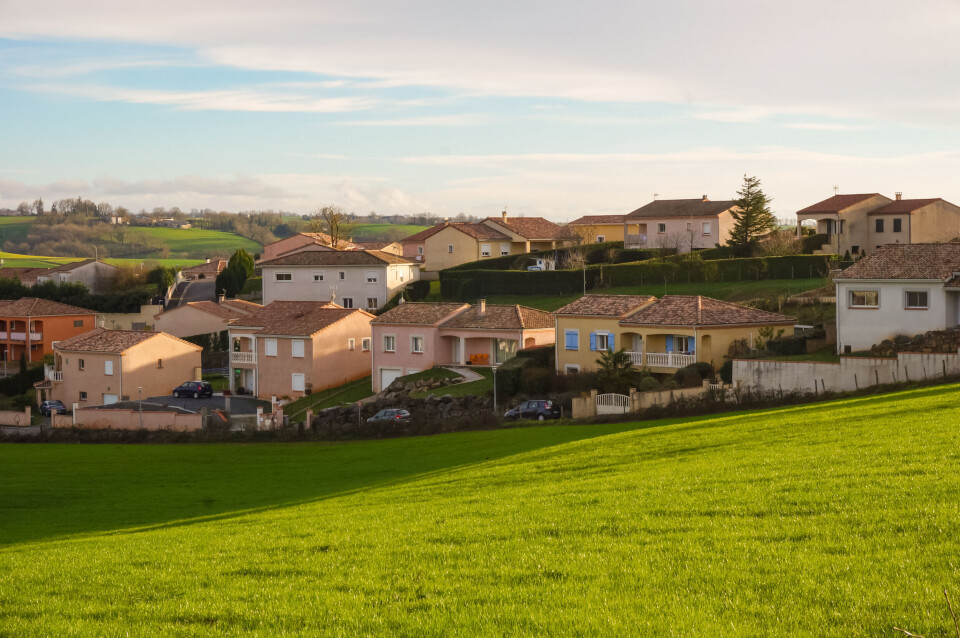-
France heat: 130 records set on February 25 - will it continue?
Seasonal records smashed as far north as Normandy and in the Alps
-
Aer Lingus relaunches summer Nice-Cork service
Two flights per week between May and September link south of Ireland and France
-
Foreigners in France 'should be given local votes back'
Political right mobilised to try to halt debate on law extending rights
Rural France will suffer most from ‘no new-build’ policy, warn mayors
Elected officials lay out why the building ban on undeveloped land will punish small towns and villages

Rules limiting the amount of new land that can be built on will punish small towns and villages financially – and come at a time when there is demand to relocate from cities, rural mayors have warned.
France is aiming to stop all new building on previously undeveloped land by 2050, as part of its ‘zero net artificialisation’ (ZAN) policy. This will also apply to roads and concrete or asphalt car parks.
As a first step, communes must, by 2031, reduce the average space deemed ‘artificialised’ each year by half.
‘We need to give building permits to newcomers’
Michel Gros, president of the Association des Maires Ruraux de France (AMRF) for the Var department, said at the launch of a campaign against ZAN proposals: “In our village, we have not had any new buildings put up for the last couple of years, which means effectively we will be fined if things stay as they are.
“The communes that benefit the most at the moment are the ones that have been doing the most building.”
The AMRF claims the ZAN measures, which were included in the 2021 climat et résilience law, did not take the practicalities of rural life into account. It wants flexibility to set rules at a local level.
Mr Gros said one of the effects of the Covid lockdowns was that rural villages are now more attractive to newcomers than they have been for years.
“We have to be able to give building permits for incomers if we need to,” he said, adding that there needs to be an exception too for communal buildings, such as gymnasiums and halls.
Parliament recently passed a law giving 31,000 rural communes the right to build on at least one hectare of new land by 2031, regardless of previous construction.
Read more: New data highlights six key trends in France’s property market
Property tax revenue will stagnate
The financing of communes in France also depends on local property taxes.
Communes say they have to allow more houses to be built if their finances are to keep up with rising annual costs, such as the minimum wage paid to communal workers.
Increasing taxes to keep up with inflation is often politically unacceptable and has even led to prefects rejecting budgets.
Living in a block of flats is better for environment
A 2021 study from the think-tank La Fabrique Ecologique said stopping the artificialisation of natural or agricultural land was “primordial” for the ecological transition.
“It is one of the main causes of climate change and the loss of biodiversity,” the report states.
“It amplifies the risk of flooding, reduces the yield from agricultural land, increases energy use and causes social problems at local levels.”
The report notes the tax incentive for communes to build, and the popularity of a house and garden among the population, especially after the Covid lockdowns, but says there must be a concerted effort to move people into blocks of flats and other collective housing.
Read more: French housing minister sparks debate over future of detached houses
Read more: Dream of a detached house with garden fades in France
Expensive to renovate existing ‘half-ruined’ houses
Another factor identified by La Fabrique Ecologique is the number of empty homes in France, with figures from the state statistics agency Insee putting it at 8.5%, compared to 4% in Germany, 3% in the UK, and 1.7% in Switzerland.
One member of the AMRF, François Descoeur, mayor of Anglards-de-Salers, a village with 708 inhabitants in Cantal, highlighted the problem, telling French television there were at least five “half-ruined” houses in his village.
“It is cheaper to build new elsewhere than renovate or demolish them and rebuild,” he said. “We need a Marshall Plan for our villages.”
At the moment, the debate over ZAN has not had much public impact, but mayors say that as planning permissions are refused because of it, that will change.
French electricity grid operator RTE has just published the results of a major survey of ecological issues, which found that 60% of people living in flats wanted their next move to be to a house with a garden.
Related articles
How can I oppose my neighbour’s building application in France?
Man who saved French church from ruin sued for breaking building rules
Couple fight buyer’s €140,000 repairs claim for self-built French home
























